Travel risk management is a hot topic in corporate travel management – and for good reason. Beyond a moral responsibility to keep employees out of harm’s way, organizations have a legal obligation to do so. Laws hold a company responsible for the safety and security of its employees while they are working. This is known as ‘duty of care’ and it specifically applies when employees are traveling for business purposes. It should be noted that duty of care applies not only to foreign travel, but also local and domestic travel.
An organization’s duty of care liability can extend to situations such as:
- Educating employees on recommended inoculations before traveling to certain areas
- Ensuring access to adequate medical treatment while working overseas
- Having a business continuity plan in the case of a natural disaster
- Providing pre-trip briefings of political unrest and other risks in areas where employees are sent
- Providing evacuation in the event of an accident or uprising
Travel Risk Management strategies emphasize prevention before travel begins. Travel policies can help prevent risk by requiring employees to use preferred car rental vendors that offer well-maintained vehicles or by setting hotel requirements and standards. They might include restrictions of how many employees can travel on the same flight and a pre-defined process for communication when in high-risk destinations. Prevention also includes the duty of informing travelers of inoculations and visas required for their destination or a simple reminder to only drink bottled water for health reasons.
Risk mitigation also includes making travelers aware of current events, potential political hotspots or the propensity for natural disaster that could put an employee at risk during their business travel. Pre-trip briefings, such as travel alerts or cultural training, highlight local customs and situations of which travelers should be aware. To successfully educate travelers before they go, an organization needs to know who is traveling, when and where they are going, prior to the trip. Travel Management Companies can provide traveler information reports from their own systems or from risk management providers such as iJet, Concur Risk Management or Safe to Go. We will discuss specific tracking options in Part 2 of this series next month.
Beyond destination intelligence and preventative care, organizations should also be prepared to provide guidance and assistance to keep employees safe during the course of business travel. Again, it is important that an organization knows the location of their employee (city and hotel), and know how to communicate with them. Detailed data is an invaluable tool to track, locate and communicate with the employee while they are away from home.
An effective duty of care plan may include facilitating a passport replacement or making funds available after a theft, providing instructions to stay or leave during unrest, or arranging evacuation home after a serious illness or injury.
The stakes are high for the organization, both morally and fiscally. The UK’s Corporate Manslaughter Act of 2007 applies to any work-related death in the UK, whether or not the employer is registered in the UK. It has become the standard for corporate travel safety worldwide, but the liability issue is complex, so legal counsel may be appropriate. Interestingly, some companies foster a ‘duty of loyalty’ culture in their travel programs. They reward business travelers for following travel policy and avoiding risky conduct at their destinations.
Look for Part 2 of our Travel Risk Management topic next month. In the interim, please contact Covington Travel’s Corporate Services Department for more information on travel policy and travel risk management.

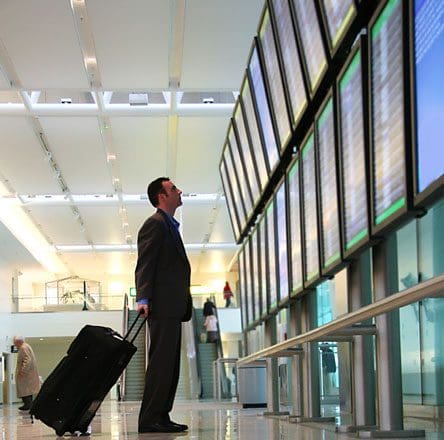
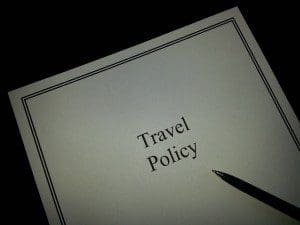

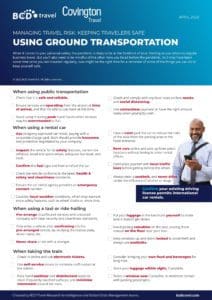
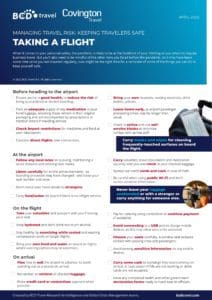
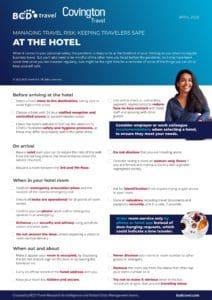
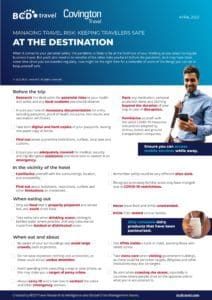
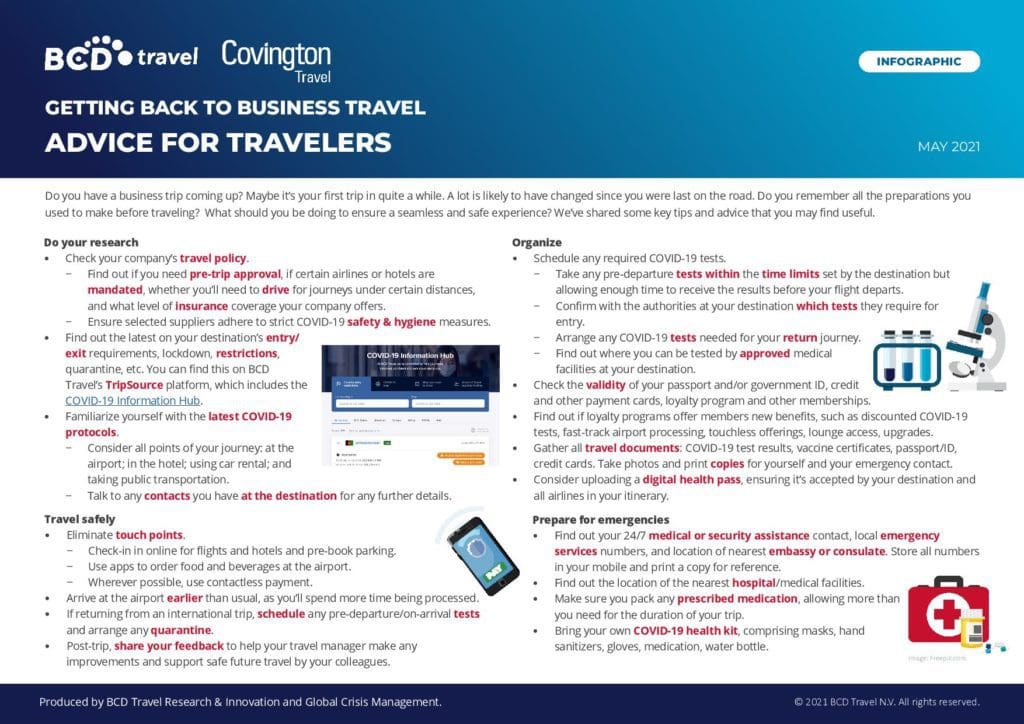
[…] a post to its website last year, Covington Travel wrote that the U.K.’s 2007 Corporate Manslaughter Act “has become the standard for […]